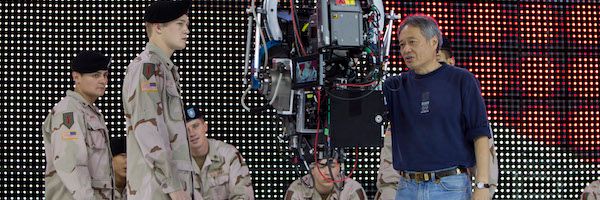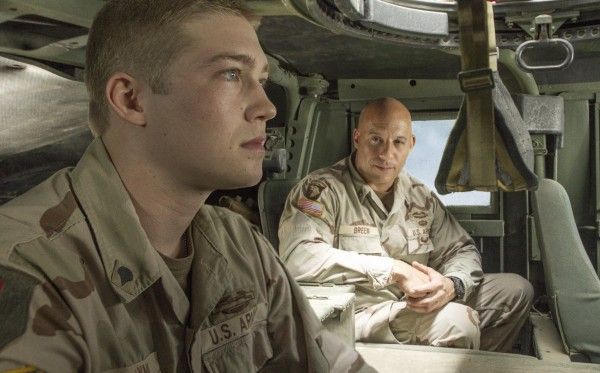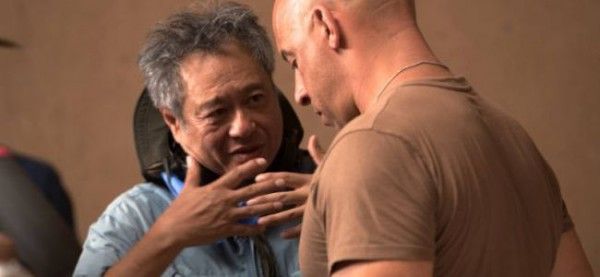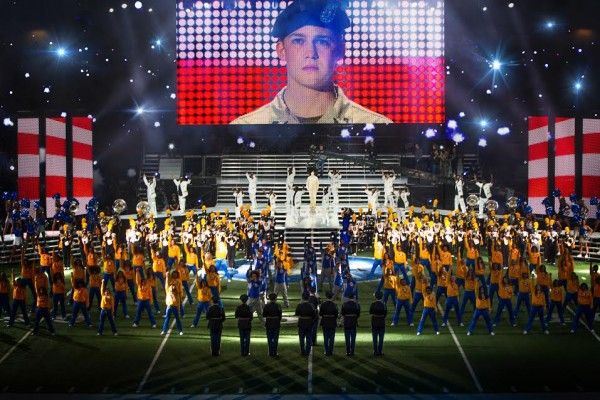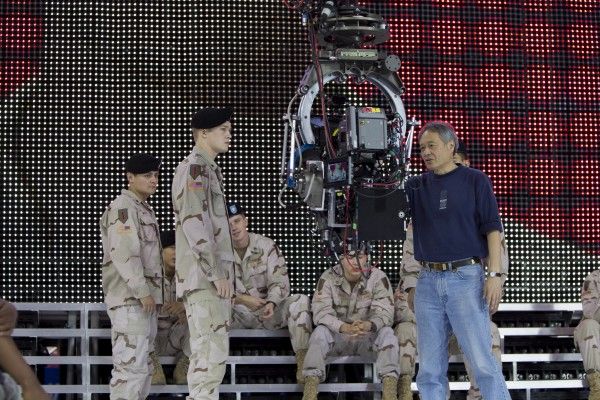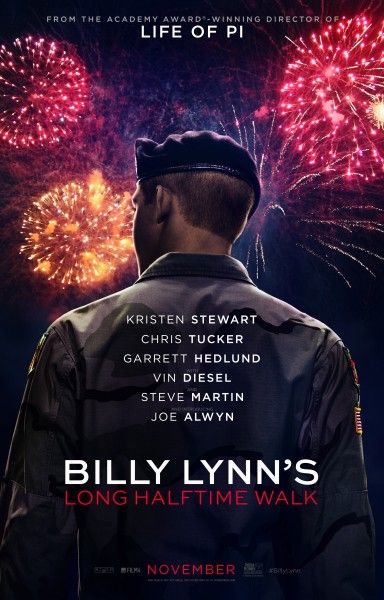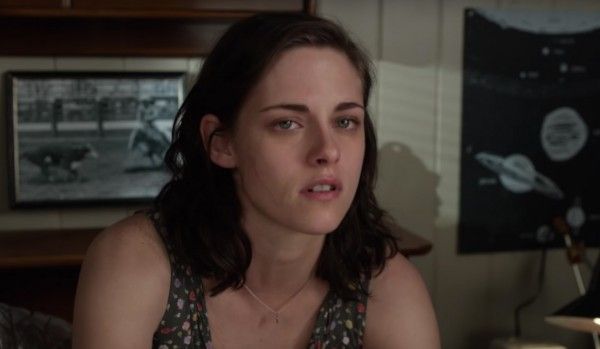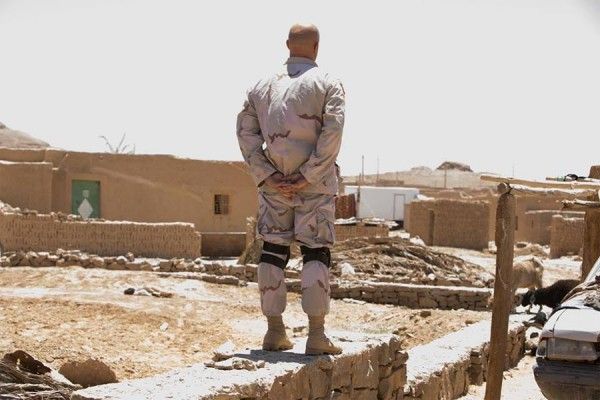Ang Lee has always been ahead of the curve, whether it's re-introducing martial arts cinema with Crouching Tiger, Hidden Dragon, making one of the first ultra-mainstream gay films with Brokeback Mountain or furthering the methods of how CGI and 3D can be integrated in modern cinema with Life of Pi. Technology and the future of cinema is the new obsession for Lee, and not the what will become of film? side of that coin, but more how will audiences watch and immerse themselves in the film world in the future.
Enter his Billy Lynn's Halftime Walk which was presented at the New York Film Festival as the first film of its type: 120 frames per second (nearly every modern film has been 24 fps; The Hobbit was 48 fps), in 4K resolution and 3D. The film follows a soldier named Billy Lynn (Joe Alwyn) who's briefly returned home to Texas to be a part of a Thanksgiving halftime show celebrating his heroism, the USA and the music of Destiny's Child. During the day the sensory overload of being paraded around as a hero throws him into flashbacks of combat aside Vin Diesel, Garrett Hedlund and others.
I attended the first screening of its kind and the experience was a little surreal (my review is here). You could feel the entire room being unaware of how to react. It is something that's very new and jarring. I certainly had quibbles with the look of the film and the pace of the story itself, but I am nonetheless impressed with Lee's commitment in attempting to create a new type of cinema. It's unclear if this high frame rate, 3D immersion will indeed be the future, but Lee will continue trying.
By now, you've probably seen a lot of negativity about the visuals on Twitter and many websites, but I encourage everyone to go in with an open mind and draw their own conclusions (especially since most theaters will show it in a lesser frame rate and resolution, of which any review you've read is not reviewing outside of the same story). When I sat down with Lee to talk about this new technology he said that he'll be monitoring what people like and don't like from the experience. It was also clear that he's feeling a little exposed at the moment, being the first to attempt such a medium, and I applaud his desire to continue to learn. Anyone interested in the future of cinema should give it a try.
Collider: There are very few theaters in the world that are equipped to show Billy Lynn how you intended and a lot of equipment needed to be brought last night for your premiere, did last night look and sound exactly how you wanted it presented?
ANG LEE: We are accommodating different formats for different theaters. But yeah, that's the way I shot it and then modulated with different frame rate and resolution very subtly. Last night was the best format. Except if I could’ve incorporated that with Dolby Vision but that’s not possible and probably still a couple movies away. Actually, it’s beyond what I saw while shooting because, when I was shooting, I watched the monitor at 60 frames per second and at a much lower resolution. But this is how I tried to envision it before I could actually see it. The 60 frames per second version will be an improvement. I shot this in that method and then blended different frames to improve it.
When you were going through the editing process was that also in a lower frame rate?
LEE: Yeah it was 60, the same resolution and frame rate as I saw on my monitor on set. You'll very rarely see it like this.The first time I saw it play like at the premiere was only the day before yesterday [laughing]. They were adjusting the laser light in the theatre when they finally installed it. That’s the only time I saw it and it wasn’t done, yet [laughing]. Imagine how I felt last night.
How did you feel last night?
LEE: It was overwhelming. I was not overwhelmed like the audience I witnessed, I think they're very much like this [holds his head]. I think it's a very intense movie in a new format. It must be a lot to absorb but for me I know the movie so my nervousness was how people would react to the movie [laughing].
How long have you been monitoring this type of technology to make what you wanted to make?
LEE: Ever since Life of Pi. During Life of Pi, I had a lot of questions. I used very little 3D. I shot it at 2D with a little bit of dimension—except when it's a full CGI shot then, I can do my experiments like animation film—but I knew that I wanted to get into this full immersion shoot. Higher frame rates get rid of the strobes in 3D. This become more clear than as to why I wanted to shoot this way, but then there were some unknowns of how much light and performance needed to change. Once you pass 60 fps, psychologically, the way you involve with it is different because of that strobe. After 60 fps, that strobe started to disappear and then it started to become something else. It's very attractive but it’s also scary, there’s no other movie like this to protect [us].
About two years ago, after i was on board to do this movie, doing pre-production I started to start thinking about 120 fps and I actually realized that I can shoot that. Shooting isn't the problem and Sony is a hardware company so storage is not a problem. The problem is the unknown, but that was also appealing.
So you saw it for the first time two days ago and the first time with an audience last night. I know that you're trying to/ wanting to do Thrilla in Manila next. What have you learned from this process of unveiling it for the next time you try?
LEE: The feedback will teach me a lot. That happens starting from today. The next few months I will learn a lot because other filmmakers will have some opinions on this film and audiences will start having opinions, too. That will be the learning process for me, not in terms of filmmaking, but in terms of whether or not [this type of film] can be a part of a culture as a medium separate from how we see movies now. It's like football and baseball, it's going to be a different sport. It’s quite different for me. I will look at reviews, too, but of course, I think skill-wise I will be more experienced next time. My crew really trusted me because we didn’t know exactly how this would look. Now, a lot of technical problems we had should go smoother, but after receiving the feedback, I want to go to the next thing and even though I’ll be more experienced we'll create new problems that we’ll have to break and try to solve those.
It’s interesting that the backdrop of this is football in the stadium and the next one you want to do is boxing because it does seem like that for that frame rate sport is a great place to test and get people used to watching it.
LEE: Of course. At heart, I'm a dramatist and I treat action sequences like dramatic scenes. When people are testing themselves, whether it's a sport or a fight or being in the line of fire fight, they’re put in the ultimate test. You examine humanity in that action. The situation is chaotic or messy or hostile and your [basic] instincts just shows up. I think it's a good vehicle for this stylized drama whether it's a sport or fight.
Joe Alwyn is great in this but he’s barely acted prior to this so is that something you were looking for—since it is a new medium—so you don't have to train an experienced actor to act differently?
LEE: Joe was still in school, he’d never done anything professionally yet. Yeah that's actually easier (to direct a new actor) in this medium than for the experienced actors.
Do you think that's an exciting part of this new medium you’re trying to create? If it takes hold, we could have performers who enter acting in this medium.
LEE: I don't know. Veteran actors all bring something good, but they all have something to get rid of and something to improve. I think experienced actors have more things to break and make an adjustment because they're used to the craft of one medium and this medium and this medium is very different to act in. The fresh talents doesn't have adjustments to make but they have to make adjustments to do professional work, that's the skill they have to pick up. So they're all pretty equal to me but I do like to work with talent. The fresh faces may not have too much experience professionally but they generally have some [acting] training that I like. Except the kid in Life of Pi (Suraj Sharma), I found him in high school. He escorted his brother to the audition to get picked up but was then asked to audition. So he had to undergo personal, intense training for three months.
Do you desire at all to go back to traditional filmmaking or 2D?
LEE: No not right now, no. I think this phase, there's so many more questions that I have. I wanna find the answer and I'm sure one answer will open up 10 more questions, which I’m already getting this morning. I hope I'm allowed to do it and continue down this road for a while. I want to know more about this kind of filmmaking, it's new to me and it’s new in the world.
Well, it’s certainly brave to start the exploration and commend you on that.
LEE: I’m exposed! [laughing]
Billy Lynn's Long Halftime Walk will play in theaters November 11, 2016 (NOTE: Most theaters will play a 60 frames per second version).
To catch up on all of our NYFF coverage thus far click here or peruse the review links below:

